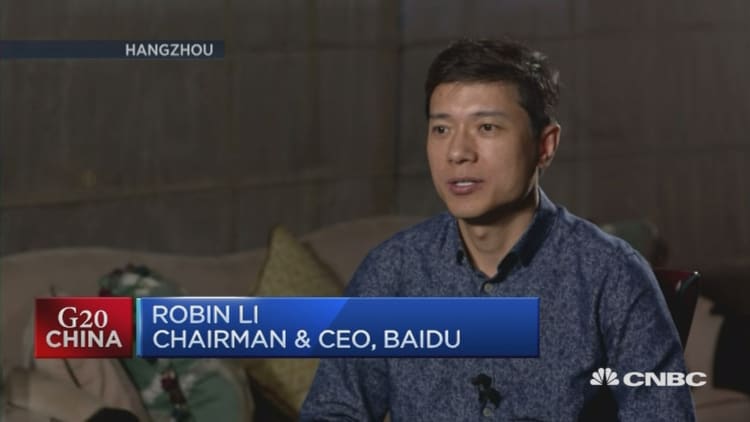The billionaire chief of Baidu, which is often referred to as China's Google, has urged Beijing to further ease visa restrictions to attract overseas workers, some of whom might be put off by US President Donald Trump's restrictive immigration policies.
"China should be more open in its immigration policy," Robin Li Yanhong, Baidu chief executive and a delegate of the Chinese People's Political Consultative Conference, said at a panel of the ongoing two sessions in Beijing on Monday. "Chinese companies have made a lot of effort to attract overseas talent to work in China. But most of the talent we attract are overseas Chinese," he said. "In the meantime, Silicon Valley has gathered top tech talent from across the globe."
More from the South China Morning Post:
Xi aide urges tighter party grip on China's branches of power
From blue skies to smog and back again: a week in Beijing
China closes gap with US in hi-tech breakthroughs, KPMG finds
Li said the newly elected US president offered the Chinese mainland "a great opportunity" to attract skilled workers. But domestic technology companies needed the government to liberalise immigration policy if the firms were to compete against Silicon Valley and help turn innovation into a driver of growth, he said.

According to the latest figures of the US Department of Homeland Security, there were 13.1 million green card holders in the United States at the start of 2013, almost two-thirds of whom had acquired permanent residency in the previous 13 years.
The mainland began giving out green cards in 2004, but just 7,356 foreigners have been given permanent residency in the first 10 years of the scheme, despite an estimated 600,000 people from overseas working there. Last year, 1,576 foreigners were made permanent residents, an increase of 163 per cent over the previous year.
Demand for skilled workers in the tech sector has grown in recent years as the internet culture and e-commerce matures on the mainland, with companies such as e-commerce giant Alibaba and telecoms firm Huawei becoming industry leaders.
Miao Lu, secretary general of the Centre for China and Globalisation, a Beijing-based think tank, said securing top talent was critical if the nation was to become a globally influential power. Trump's stance against immigration offered Beijing an ideal opportunity to lure those workers, Lu said.
Chinese President Xi Jinping said early last month the mainland should overhaul its permanent residency regime. People's Daily reported the next day that a new version of the green card, with improved security features, would be rolled out this year.

Miao's organisation has proposed establishing a dedicated national immigration bureau to handle applications, which are now processed by the Ministry of Public Security. "The proposal has received positive feedback from the country's top-level policymakers," she said.
But Beijing will have to address what many expats see as the biggest negative to working in the mainland's biggest cities – dangerously high levels of pollution.
In January, the person smartphone company Xiaomi hired to take the brand global, Hugo Barra, resigned and returned to Silicon Valley, citing health reasons.
He said on Facebook that the last few years of living in a "singular environment have taken a huge toll on my life and started affecting my health".
A survey by Beijing-based online platform 36kr.com, released the same month, found that half of nearly 300 entrepreneurs polled had considered moving their businesses or part of their operations out of the city because of concerns about air pollution.

